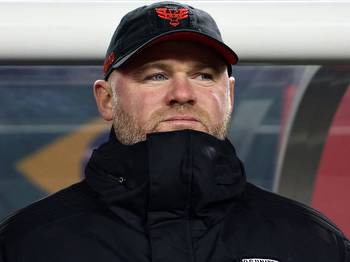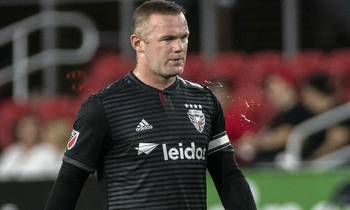Gabriel Jesus' Arsenal move has World Cup implications for Brazil

Gabriel Jesus hit the ground running when he joined Manchester City. Still a teenager at the start of 2017, the striker made such an impression that for a while he was in the starting lineup and City legend Sergio Aguero was on the bench.
Five and a half years later, it is apparent that he has not become the long-term successor to Aguero, an impression reinforced by City's acquisition of Erling Haaland. And with the Norway international joining the club along with Argentine striker Julian Alvarez, Jesus is clearly concerned at being squeezed out of first-team action in the vital few months ahead of the World Cup. Jesus is set to move south to Arsenal with his career at the crossroads and with a key question hanging over him: what type of striker is he?
Back in 2017, it looked clear. He was a versatile and mobile operator capable of working all across the front line, but he was going to mature into a top-class centre-forward. At the time that he joined City, Jesus already appeared to be the solution to what had become a surprisingly long-term problem with the Brazilian national team. He was thrown into the deep end in World Cup qualification in September 2016 at centre-forward, won his debut game away to Ecuador and did not look back. He scored seven goals in nine World Cup qualifiers, grabbed the winner when Brazil played a warm up friendly away to Germany and went to Russia 2018 with an impressive record of nine goals in his first 15 games.
And then it all went wrong.
Jesus failed to score a single goal in Russia. Brazil has fielded much-maligned centre-forwards in the past -- Serginho in 1982 or Fred in 2014, for example. But at least they managed to get on the scoresheet. Coach Tite confessed that he wished he had made a change in the position during the competition. He should have brought in Roberto Firmino, he said, to replace Jesus. For the player, the 2018 World Cup left a trauma that remains to this day.
In those early days when he was banging in goals for his country, a comparison was made between Jesus and the original Brazilian Ronaldo. The source could not have been more authoritative; it was Ronaldo himself. Nowadays, it is not a comparison that anyone would make, which is not necessarily a criticism of Jesus. He has simply developed in different ways. Ronaldo bulked up into a powerhouse of a centre-forward. Jesus has not been through the same physical process, and there are doubts about his lack of penalty-area presence.
But what is the root of such doubts? Is it a lack of physical strength? Or does it come from question marks in the player's own mind?
Brazil have hardly used Jesus as a centre-forward since Russia 2018, but in part that is his own choice. Tite called him over and asked him where he would like to play. He replied that he had no preference. The coach pushed him harder for an answer, and he eventually declared himself happier attacking from wide.
Cutting in from the flanks certainly suits some of his characteristics. He is a sleek figure running with the ball and is excellent at appearing as an element of surprise to put pressure on opposing defenders. But has he been running away from the goal-scoring responsibilities of the centre-forward? If he could do the job for his country five years ago -- and could be selected for City ahead of Aguero -- then why not now?
Gunners boss Mikel Arteta, of course, was there at City on Pep Guardiola's staff when Jesus made such a promising start to Premier League life. Arteta surely has a vision for how his new signing will fit into the Arsenal side. It is important that both of them are on the same page -- not only for Arsenal but also for Jesus' World Cup future.
Earlier this month, Jesus found the net for Brazil in a friendly away to South Korea, breaking a long dry sequence of 19 games and nearly three years without a goal. He has had plenty of opportunities: seven World Cup qualifiers plus four games off the bench, four matches in last year's Copa America and another four friendlies. He showed an understandable sense of relief, then, after cutting in from the right to plant a left-footed shot inside the far corner. It was a fine effort, but it was a stoppage-time goal in a 5-1 friendly win.
Meanwhile, plenty of other Brazilian strikers have emerged, especially over the past 12 months. Competition for a place in Qatar is fierce. If the squads were to contain the traditional amount of 23 players, then, for all his versatility, Jesus would really be sweating on a slot. The increase to 26 gives him a much better chance of making the cut. Game time at club level could be important at getting him on the plane and higher up the pecking order -- and this is surely a massive factor in his desire to move away from Manchester City.
This, then, is a player in a hurry. Jesus will not go to Arsenal expecting a gentle period of settling in. He will want to hit the ground running -- just as he first did at City -- but with a different ending in the next World Cup.

































